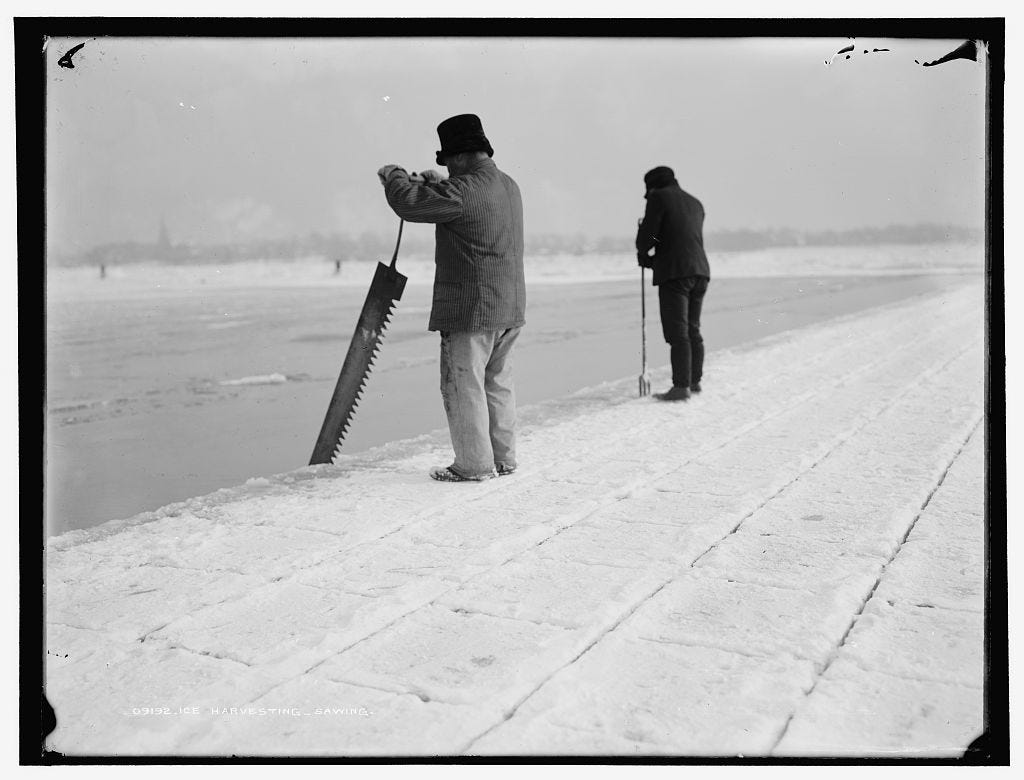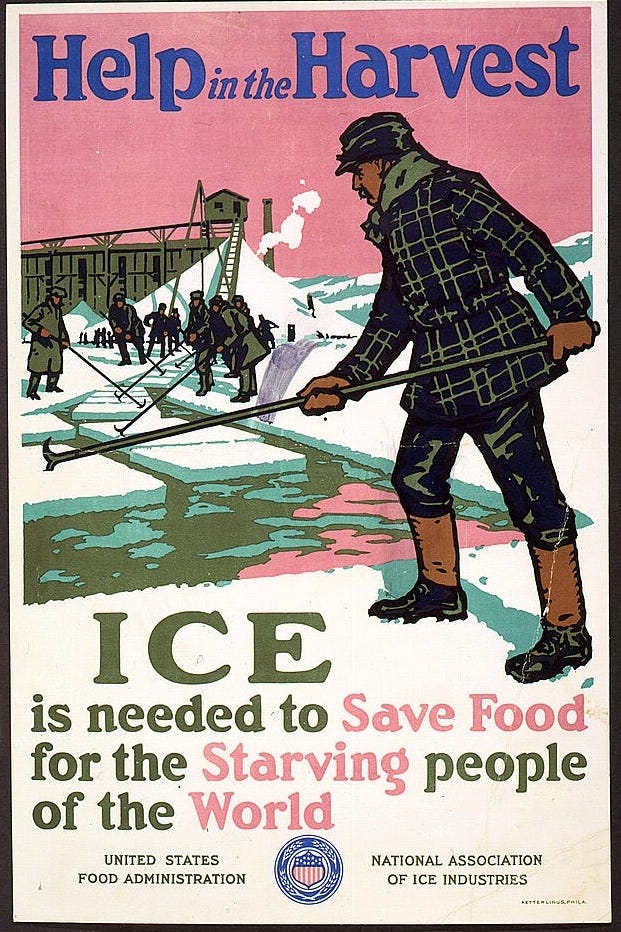When I was first becoming interested in improv comedy, over a decade ago, I remember one of my favorite ways to ask the audience for a suggestion was this:
What’s an obsolete occupation?
Since moving to New England, I’ve learned about ice harvesting, which was once a major industry in the area. Before the days of mechanical refrigeration, ice was harvested from ponds, lakes, and rivers during the winter months and shipped worldwide. The large blocks of ice would then be stored in ice houses for use throughout the year.

Here’s a video about ice cutting made by Thomas A. Edison, Inc. in 1902. Both manual labor and literal horse power are involved:
During World War I, the United States Food Administration, a federal agency set up to ensure food security, put out a call for people to come help during the ice harvesting season:

Although ice cutting is still sometimes practiced today, it is listed as an obsolete occupation on Wikipedia. (I haven’t looked through all the occupations on that page, but I’m pretty sure I’d choose garden hermit if I had to take a job off the list.)
Family occupation history
Another audience suggestion question I enjoyed asking in improv shows was this:
What was your grandfather’s occupation?
Do you know the answer to this question? If not, you might be able to find out!
I used ancestry.com to find my grandfathers in the 1950 census. One was listed as a boilermaker helper working in the railroad industry and the other was listed as an insurance agent. While I knew my one grandfather worked in insurance, I didn’t know that the other was involved with the railroad. My insurance agent grandfather was documented as having worked 54 hours in the week prior to the census. This was one hour less than his neighbor, a milkman, who worked 55. My boilermaker helper grandfather worked 40 hours, which was more standard for the time.
In 1950, both of my grandmothers were staying home with young daughters, and they were registered as “keeping house.” The way the census was structured, they were not asked how much time they spent doing housework, so I’m left to wonder about this and so much else.
Looking at old data is strange because it makes you feel like you can reach across time and understand the past, but it also makes you aware of how much you don’t know.
Were my grandfathers happy in their jobs? Did my grandmothers enjoy motherhood? How did they spend their days during the long stretches of time my grandfathers were away at work? How did my grandparents spend their evenings together?





Great read, Frank worked in construction at some point too. I took a picture of a stone wall he made outside their house in Northside.
I always chat about the ice harvesting in Derry when we do cemetery tours in Forest Hill. Harvey Perley Hood, founder of Hood milk, had his dairy farm here. One of the aspects of the business that made it the New England institution is that he was able to harvest ice from Hood Pond. He had a cool ice escalator to move it to the ice house for storage. They were positioned right next to the train station. He utilized the ice to make refrigerated box cars. In this way, he was able to send fresh milk up and down the line effectively. Innovative!